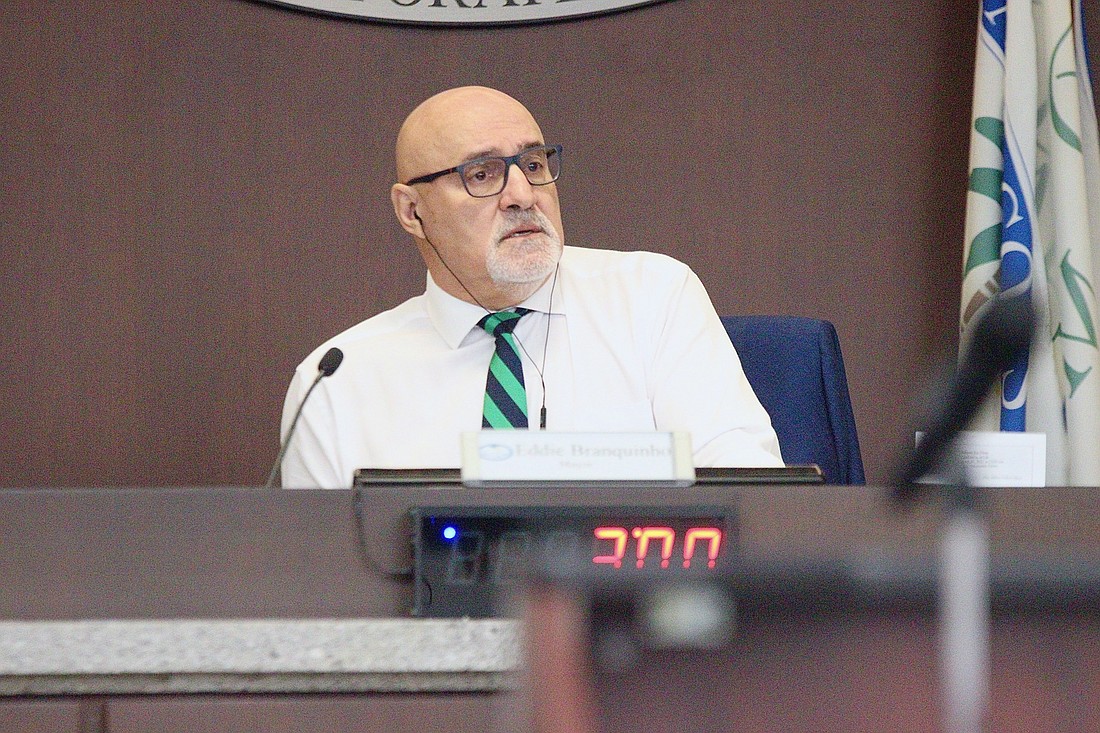- December 15, 2025

Divided 2-2 over what the city's maximum property tax rate should be for the upcoming fiscal year, Palm Coast's City Council on July 20 resigned itself to waiting for the city's next mayor to break the tie.
It's the second time the council has opted to hold off on a major decision in order to wait for the new mayor: It did so last week on the topic of whether to allow vehicles with commercial signage to be kept in driveways.
The topic that split the council on July 20 was an early step in the city's annual budget process — determining the maximum property tax rate that will be listed on the TRIM notices sent to property owners.
The council will finalize the millage in a series of budget hearings this fall, and the maximum rate sets a ceiling for those discussions: Once it's set, the council can not exceed it. It can only lower it.
By law, the city must set its maximum rate by Aug. 4.
The current city tax rate is 4.6989 mills, or $4.6989 per $1,000 worth of taxable property value. That's what it's been since 2018.
Because property values have risen about 10%, 4.6989 mills would bring in more revenue for the city in the coming year than it did in the current fiscal year. Much of the increase is from new construction. For homesteaded properties, annual property tax increases can not exceed 3%.
Councilman Nick Klufas favored setting the maximum at 4.6989 mills, noting that the council can always decrease that once it begins its close review of the budget in coming weeks.
But Councilman Ed Danko motioned to set the maximum lower, at 4.60 mills.
"We can send a message to the taxpayers that, 'We feel your pain, we know what you've been through with this virus for the last year and a half, we’re going to tighten our belts just a little bit,'" Danko said.
Councilman Victor Barbosa seconded Danko's motion.
Klufas asked Danko what he'd cut out of the city's proposed budget in order to lower the rate.
Danko said the council can determine that by going through the budget line by line.
"I think we can all find places to make cuts once we get to that situation," Danko said.
Klufas warned against "hamstringing" the city by setting the rate too low and pressed Danko again to suggest a way to cut costs.
"As a responsible representative, we should be able to say, 'This is what we’re going to do,' but, more importantly, 'This is how we’re going to get there,'" Klufas said.
He added that there's still the possibility of some unforeseen disaster, like a hurricane, impacting the city before the budget is finalized.
Councilman Eddie Branquinho noted that 4.60 would still be a tax increase in terms of the revenue coming into the city: The rollback rate, or the rate that would bring in the same dollar amount — $5.83 million — as was generated in the current fiscal year, would be 4.4593 mills.
Barbosa withdrew his second of Danko's motion, which then failed because no other council members would support it.
Branquinho made a motion to set the max at 4.6989.
"I just think it’s the responsible thing to do, to play it safe," he said. "We could always bring it down, if we find places to cut."
Klufas seconded, but Branquinho's motion failed in a 2-2 vote, with Danko and Barbosa dissenting.
Barbosa then made his own motion — to set the maximum rate at the rollback rate of 4.4593 mills.
Danko seconded.
That motion also failed, this time with Branquinho and Klufas dissenting.
"Due to the fact that we’re going nowhere today, we’re going to wait for the new mayor," Branquinho said.
Barbosa suggested cutting costs by starting with the planned expansion of the city's tennis center into a regional racquet center, and Danko asked if an incoming mayor would be able to make a motion to reconsider the council's previous decision to move forward with the expansion.
City attorney Bill Reischmann said a motion for reconsideration could only be made by one of the council members who'd voted in favor of the expansion when it passed — that would be Klufas or Branquinho — and that the city may now have contracts that it would be violating if it reneged on its decision.
The special mayoral election is July 27. The vote on the maximum millage rate will be held Aug. 3, at the city's first meeting after the election, so that the city can comply with the Aug. 4 state deadline.